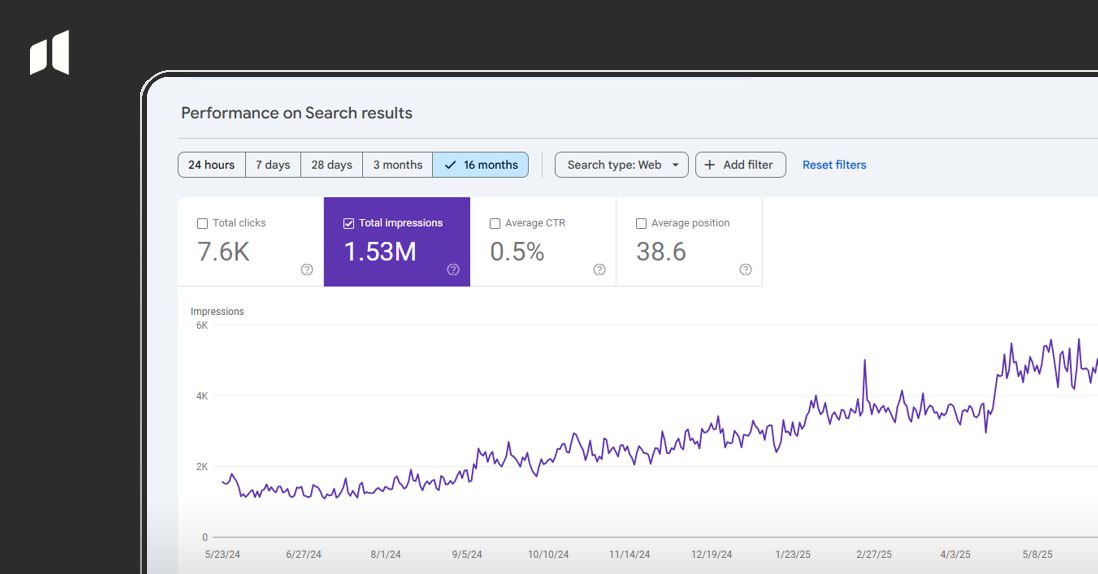Technical SEO
Technical SEO in Surrey that helps your website bring in more business. We fix the hidden issues that stop your website showing properly on Google. When your site runs efficiently and is clear for Google to read, search engines trust it more and rank it higher.

Why your website still struggles to appear on Google
A website can look great on the surface but still lose visitors and sales.
Slow loading, broken links, missing pages and code errors make Google see it as unreliable. Over time, rankings fall and fewer people find you online.
When Google can’t process your pages properly, it doesn’t matter how good your design or content is, it will always show other sites first. These unseen issues stop your site from performing as it should and cost your business opportunities every day.
How our Technical SEO helps your website attract more customers
We repair the parts of your website that search engines depend on to find and rank your pages. This includes fixing crawl issues, improving site speed, cleaning up broken code and making page layouts easy for Google to understand.
We optimise the key technical parts of your site so pages load quickly and search engines can read them clearly. This helps your business appear more often in search results and brings more potential customers to your website.
Once the technical foundation is stable, we monitor performance and keep everything running smoothly. That way, your website appears in front of the people most likely to buy from you.

Technical SEO Services We Provide
We start by checking how well your website works behind the scenes, from loading speed and mobile setup to indexing and crawl efficiency. This shows where search engines may struggle to read your site or where performance can be improved.
Next, we fix or refine the technical parts that hold your site back, such as broken redirects, duplicate pages, and poor site structure. We make sure Google can scan your pages easily so your content is indexed properly and ranked where it should be.
Each update makes your site faster to use and more consistent across every device, helping it show up more often when customers search for your services. The result is a technically sound site that ranks steadily and brings in visitors ready to buy.
What exactly is technical SEO, and why does it matter?
Technical SEO ensures your website works efficiently and can be fully understood by search engines. It focuses on the structure of your site, the speed of each page, how information is organised, and how smoothly search engines can access and index your content. A well-optimised site strengthens visibility and gives users a better experience. It also provides the solid base that supports all other SEO activity, from on-page improvements to link-building work. You can read more about off-page SEO here.
Does my site have any crawl errors, broken links or missing pages?
We check your website using tools that identify where search engines might struggle to access content. This includes reviewing crawl reports, testing links across the site, and confirming that key pages are live and indexed correctly. Any issues are prioritised by impact, fixed systematically, and re-tested to confirm they’re resolved. The goal is to make your site easy for both users and search engines to move through without interruption.
How do you check and fix site speed, performance and Core Web Vitals?
We test how fast your site loads and how well it performs on both desktop and mobile. Using tools like Google Lighthouse and PageSpeed Insights, we assess how your pages handle layout, interactivity, and visual stability. Each issue is logged and resolved in order of impact, whether that means compressing images, improving hosting response, or refining how scripts load. Once updates are made, we recheck the scores and confirm your Core Web Vitals meet Google’s standards for speed and user experience.
Is my site secure (SSL, HTTPS) and how do you maintain that?
We check your website for a valid SSL certificate, confirm all pages use HTTPS, and make sure every internal link points to the secure version of your domain. Security headers are tested to confirm encryption works as intended, protecting both user data and site integrity. We also review your hosting setup and renewal process to prevent expiry or misconfiguration. Once active, we monitor status and fix any non-secure links or resources that could undermine trust or performance in search results.
Can Google and other search engines properly index my pages (sitemaps, robots.txt, canonical tags)?
We check that Google and other search engines can reach and understand every part of your site. This includes confirming your sitemap is complete and correctly submitted, that your robots.txt allows access to the right pages, and that canonical tags point to the preferred versions of each page. We also verify there are no duplicate versions or missing links that confuse crawlers. Once these checks are complete, we monitor index coverage and adjust settings as your site evolves, keeping it easy for search engines to interpret and rank.
How do you manage URL structure, redirects and duplicate content?
We structure URLs so they are clean, logical and easy to follow for both users and search engines. Each address reflects the page’s content and hierarchy, helping Google understand how your site is organised. Redirects are mapped carefully to keep authority and avoid broken journeys when pages are updated or removed. We also check for duplicate versions of pages and use canonical tags or structural fixes to make sure only the right one is indexed. Every change is tracked and verified so performance and clarity stay consistent.
Do you handle structured data/schema markup and help with rich snippets?
We include structured data as part of every technical SEO review. This means adding schema markup that helps search engines understand what your pages represent; products, articles, services or contact details. Once the structure is in place, we test it using Google’s validation tools to confirm it meets current standards and can appear as rich results. We also monitor updates to schema types and adjust the implementation when new formats are introduced. This ensures your site communicates clearly with search engines and stands a better chance of earning enhanced visibility in search listings.
Will you optimise for mobile in a technical way (responsive design, mobile speed)?
We optimise your site so it performs properly on every device. That means layouts that adapt cleanly to different screens, design elements that stay usable without zooming, and images that load efficiently on mobile networks. We review mobile Core Web Vitals, check how scripts behave on smaller screens, and fine-tune code so pages stay fast and stable. Everything is tested on real devices, not just simulators, to confirm that users get a smooth experience wherever they visit from.
How long will it take for technical fixes to affect my rankings?
Search engines react at different speeds depending on how often your site is crawled and how significant the changes are. Technical fixes such as repairing crawl errors or speeding up load times can show impact within a few weeks once Google re-indexes those pages. Larger updates, like improving structure or Core Web Vitals, may take a few months to influence rankings fully. We monitor performance throughout, checking crawl frequency, index coverage, and ranking trends so you can see progress as it happens.
How much does technical SEO cost, and what exactly comes with it?
Technical SEO pricing depends on the scope of your site and the level of optimisation required. Our work always begins with a full technical audit to identify structural, performance, and indexing issues. From there, we prioritise what will deliver the biggest return; speed improvements, crawl efficiency, mobile performance, security, and structured data setup. We document every fix, explain what has been done, and provide a clear plan for ongoing technical upkeep. This means you know exactly where your investment goes and how it strengthens your site’s foundation for long-term ranking stability.






